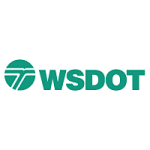- Industry: Government
- Number of terms: 5883
- Number of blossaries: 0
- Company Profile:
The technique of evaluating a component or product during or at the end of a phase or project to ensure it complies with the specified requirements. Contrast with verification.
Industry:Business services
Assumptions are factors that, for planning purposes, are considered to be true, real, or certain without proof or demonstration. Assumptions affect all aspects of project planning, and are part of the progressive elaboration of the project. Project teams frequently identify, document, and validate assumptions as part of their planning process. Assumptions generally involve a degree of risk.
Industry:Business services
The process of monitoring specific project results to determine whether they comply with relevant quality standards, and identifying ways to eliminate causes of unsatisfactory performance.
Industry:Business services
A chart using timelines and other symbols that illustrate multiple time-based activities or projects on a horizontal time scale. Also referred to as a bar chart. Activities are listed, with other tabular information, on the left side. Activity durationsare shown in the form of horizontal bars. Invented by Henry Gantt. See also bar chart.
Industry:Business services
A person, usually certified, who is qualified to perform value engineering services for a client.
Industry:Business services
The quality management plan describes how the project management team will implement the performing organization’s quality policy. The quality management plan is a component or a subsidiary plan of the project management plan. The quality management plan may be formal or informal, highly detailed, or broadly framed, based on the requirements of the project.
Industry:Business services
A list of acceptable and unacceptable behaviors adopted by a project team to improve working relationships, effectiveness, and communication.
Industry:Business services
(1) A creative approach used to optimize project life cycle costs, save time, increase profits, improve quality, expand market share, solve problems, and/or use resources more effectively.
(2) An organized effort to analyze the functions of a system, equipment, facilities, services, and supplies, for the purpose of achieving the essential functions at the lowest life-cycle cost consistent with required performance, reliability, quality, and safety.
Industry:Business services
The calculation of late finish dates and late start dates for the uncompleted portions of all schedule activities. Determined by working backward through the schedule network logic from the project’s end date. The end date may be calculated in a forward pass or set by the customer or sponsor. See also schedule network analysis.
Industry:Business services
The process of identifying which quality standards are relevant to the project and determining how to satisfy them.
Industry:Business services
